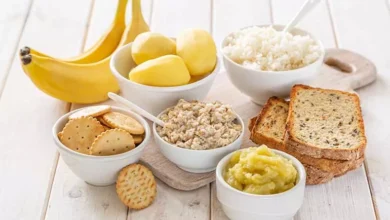Maintaining a healthy diet is crucial during pregnancy, as it contributes significantly to your overall well-being. This becomes even more vital if you’re already pregnant or planning to be. A nutritious diet during this time is not only beneficial for your own health but also plays a key role in supporting the proper development and growth of your baby.
You don’t have to follow a specific or restrictive diet, but it’s important to incorporate a variety of foods into your daily meals. This ensures that both you and your baby receive the necessary balance of nutrients. While it’s ideal to obtain vitamins and minerals from your diet, taking a folic acid supplement is recommended during pregnancy to ensure you’re getting all the essential nutrients.
Contrary to popular belief, there’s no need to “eat for two,” even if you’re expecting twins or triplets. While you may experience increased hunger, it’s essential to focus on the quality of your food rather than simply consuming more. Starting your day with a healthy breakfast can help prevent snacking on high-fat and sugary foods throughout the day.
Adopting a healthy eating routine often involves adjusting the proportions of different food groups in your diet, rather than eliminating your favorite foods altogether. The Eatwell Guide can be a helpful tool in achieving a balanced diet, illustrating the recommended portions from each food group. While it’s not necessary to achieve this balance with every meal, aim to maintain an overall balanced diet throughout the week.
Fruit and Vegetables
Include plenty of fruits and vegetables in your diet during pregnancy as they are rich in vitamins, minerals, and fiber. Fiber aids digestion and can help prevent constipation.
Make sure to consume at least 5 servings of a variety of fruits and vegetables every day. These can be fresh, frozen, canned, dried, or juiced. Always wash fresh fruits and vegetables thoroughly before eating.
Starchy Foods (Carbohydrates)
Starchy foods, known as carbohydrates, play a vital role in providing energy, certain vitamins, and fiber. They also help you feel full without being too calorie-dense. Examples include bread, potatoes, breakfast cereals, rice, pasta, noodles, maize, millet, oats, yams, and cornmeal. If you opt for chips, choose oven-baked ones that are lower in fat and salt.
These starchy foods should constitute a little over one-third of your overall food intake. Opt for wholegrain or higher-fiber alternatives like whole wheat pasta, brown rice, or leaving the skins on potatoes instead of choosing refined (white) options. This helps enhance the nutritional value of your diet during pregnancy.
Protein
open next page to continue reading…




